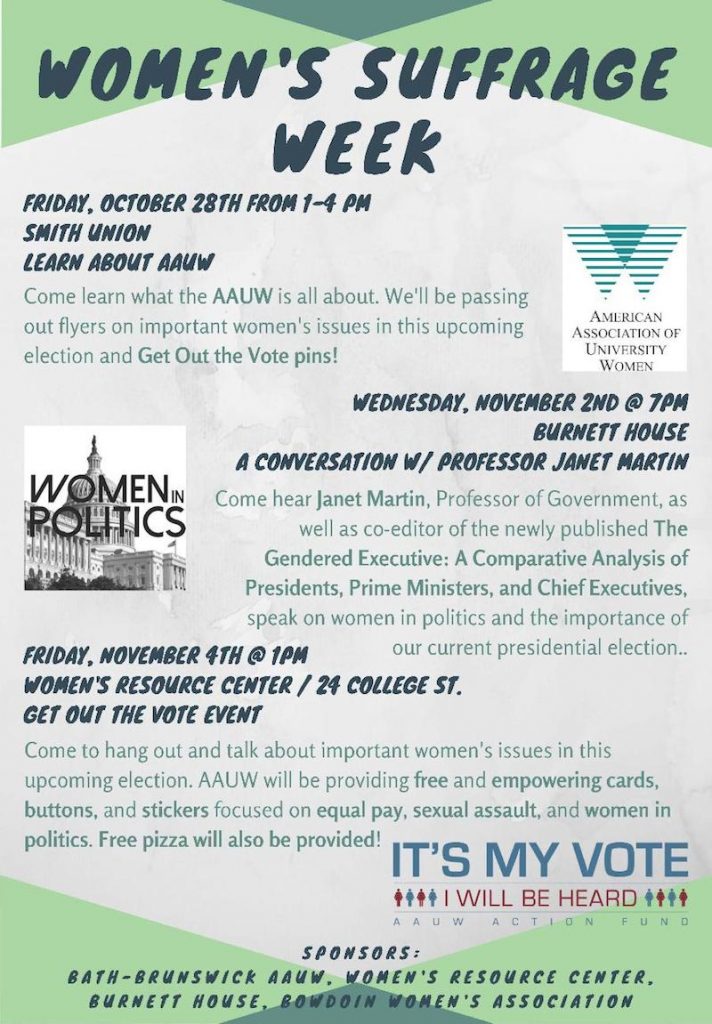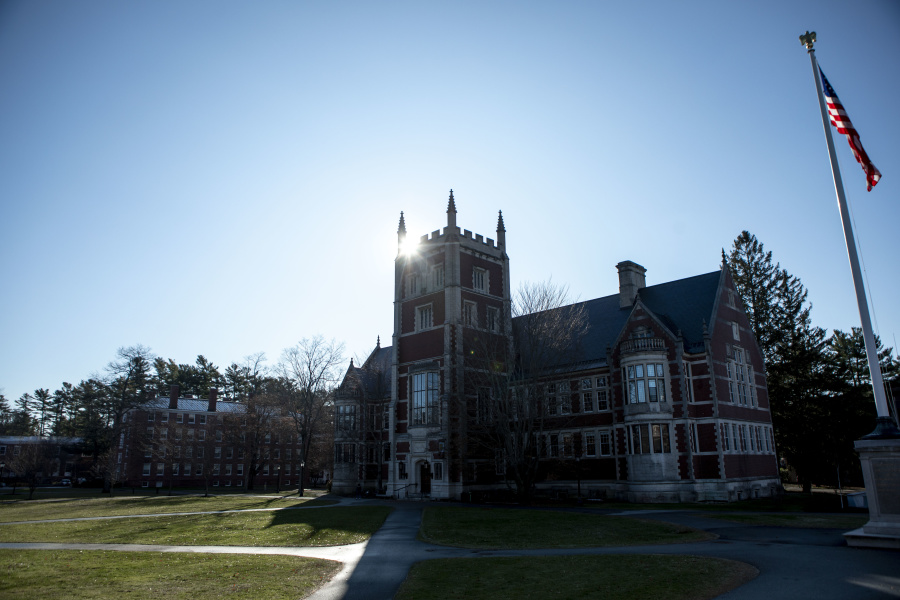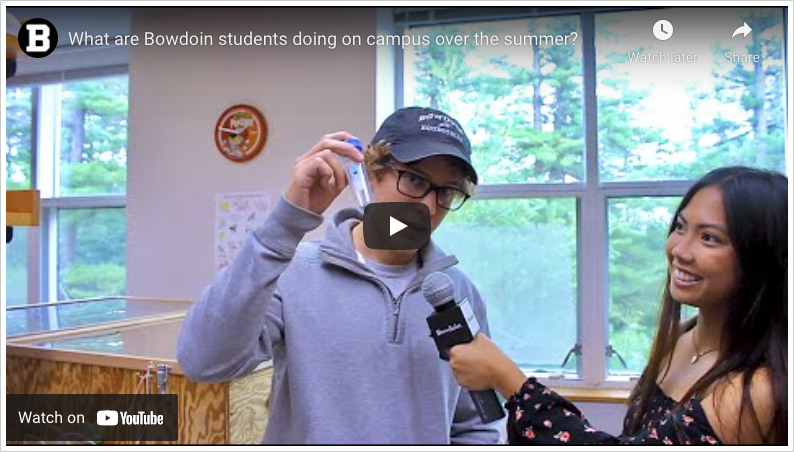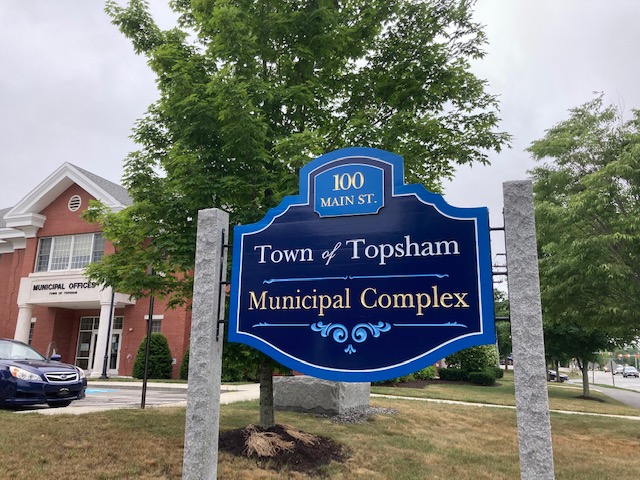For Suffrage Week, Prof. Martin Talks to Students About Women in Politics

Last week was Women’s Suffrage Week, and tomorrow voters will decide whether to elect the country’s first female president. In light of this, students organized a few events to note the important role of women in politics.
On Wednesday evening, the Women’s Resource Center and Bowdoin Women’s Association invited Janet Martin, professor of government and editor of The Gendered Executive: A Comparative Analysis of Presidents, Prime Ministers, and Chief Executives, to Burnett House to speak about the role of women in politics, particularly as they relate to this year’s presidential election.
The talk was co-sponsored by the Bath-Brunswick chapter of the American Association of University Women.
Joy Huang ’19, who helped organize the talk, said she wanted the week’s events to move beyond the spectacle surrounding the candidates and into the deeper issues of women in the political arena.
Martin began by discussing the prejudices women still face in the political world. She displayed a recent New York Times article on Rachel Maddow and Doris Kearns Goodwin—two expert political commentators—that was published in the Fashion & Style section of the paper. Martin classified the placement as a “throwback to a different era,” when women were primarily seen in society pages rather than in hard news sections.

Whatever the outcome of the election, Martin claimed it is monumental—it took 96 years from when women first got the right to vote in this country to having a woman at the top of a major political party. But Martin urged women to recognize the inequalities in suffrage distinctions: for African American women, equal voting rights have only existed since 1965.
Martin’s talk covered the history of women’s reception and portrayal in both media and politics. Martin highlighted the importance of the president’s role in furthering women’s rights, citing Title IX and its delayed effect under the George H. W. Bush administration. Martin also examined the candidates’ recent engagement with sexual harassment and assault issues, a topic Martin believed had not been a focus in the past.
Additionally, Martin discussed women’s former affiliation with the Republican Party. Historically, Martin claimed, the Republican Party was the party of women. From 1860 to 1980, Republicans attracted women’s support through their promotion of equal pay, equal rights, and affirmative action.
Students asked questions of Marin about the electoral college, as well as the history of America’s male-centric identity. Compared to the rest of the world, the United States is “behind” in its support of women in power.
“Is America ready to elect a woman as president?” Martin asked. Despite growing support, polls suggest a bias against a woman as president. Though 79 percent of voters say they are ready to elect a woman, 18 percent say they are not.
Martin encouraged the students to reduce the gender gap. “Vote,” she said. “Vote often.”



